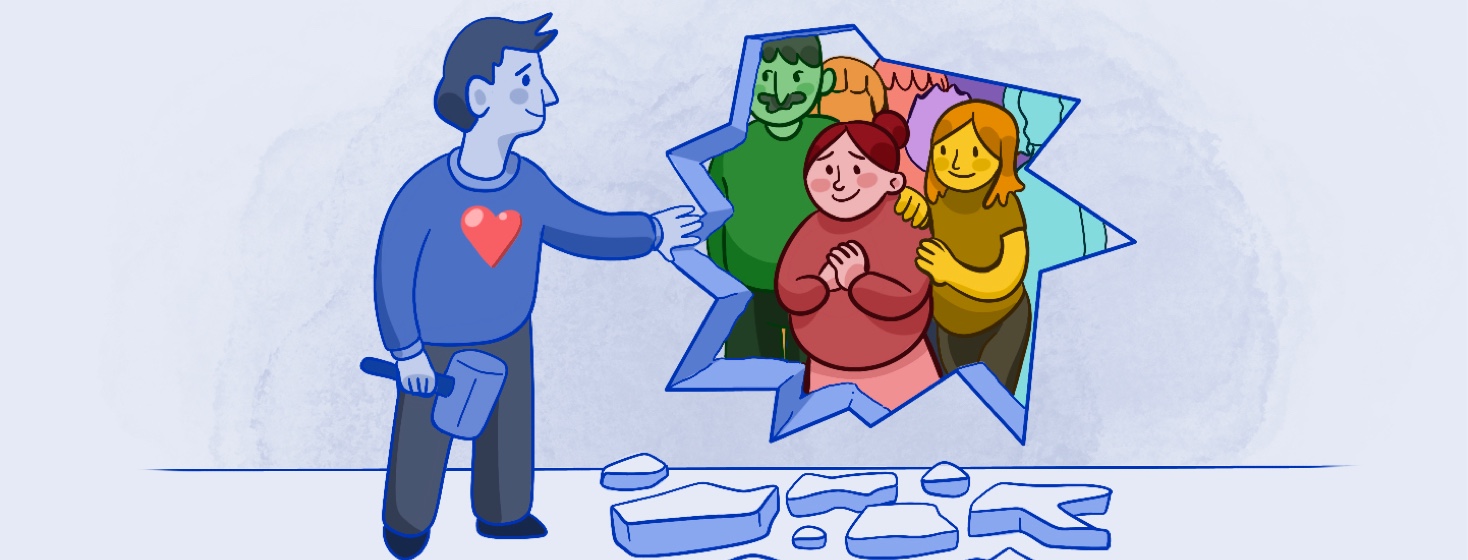Finding Your Tribe
Since there are many different types of breast cancer, finding your tribe for practical help and support on social media may take time. And, patients dealing with a Stage IV diagnosis are dealing with the extra burden of living with a terminal disease.1,2
While you might have lots of help from family and friends, these people may not have the knowledge and they may tire at the extent of your medical dilemmas as time goes by. Fortunately, loved ones can help you in other ways that virtual advocates cannot, such as day-to-day practical assistance and physical emotional support.
Hard to find support
Breast cancer is a genderless disease, and as a man with breast cancer, I found support for men was very hard to find. After all, only around 1 percent of breast cancers occur in men.3
I soon found out that not many men were willing to talk publicly about their experiences. It was as if they were embarrassed to admit to having what is assumed to be a women’s disease. Also, there was a definite stigma felt by men and it was almost as though they were not interested in going public after their initial treatments.
Advocacy for others
Joining Facebook groups or opening an Instagram or Twitter account is as important as anything you might do to get you through the ups and downs of breast cancer diagnosis and treatment. With social media you can be both proactive and reactive.
As a guy diagnosed with breast cancer, I can’t stress how much I benefited from finding my tribe. Advocacy for others soon became my reason for staying in a group. Groups can be found online through social media sites, community forums, and even local groups which offer meet-ups and telephone support.
The benefits of social media
Social media is home to the keenest men dealing with the disease, but they are outnumbered by the many amazing women, both patients and medical professionals, who are there for support when you most need them. So often, medical professionals are ready to share information that it gives you a tangible feeling of wellbeing.
Twitter, Facebook and Instagram all have people posting about their experiences, sharing advice, and offering emotional support. Seek out useful hashtags. For example, on Twitter #BCSM (breast cancer social media).
Run a weekly get-together of patients and medical professionals. Nearly all these keyboard warriors will respond to a call to the crowd for assistance. Supportive Facebook pages include Beyond the Pink Moon and Men Talk Breast Cancer.
Online community forums
Online community forums are often run by reputable breast cancer charities, and they may even offer local support groups with meet-ups and telephone support.
Check out the American Cancer Society, Susan G. Komen, Breastcancer.org, and others. They can offer guidance and connect you with others facing similar challenges.
This or That
Do you feel you have the support you need?
Only share what feels comfortable
Active participation can provide a sense of belonging and access to a wealth of knowledge. Be sure to only share information you feel comfortable sharing and be prepared to block those seeking personal communications who you don’t feel are the "right people."
And remember, while social media can be a valuable tool for support, it should never replace professional medical advice. Keep your healthcare professionals in the loop with any decisions you make.
No one should go through breast cancer alone
Eventually, you find yourself with enough experience and contacts to be a leader in your field. And, so often you end up with online friends who you’ll have for as long as you stay connected. It’s also not always about just the medical help you get, there are all sorts of niche groups which cater to your hobbies and interests.
The old adage is that no one should go through breast cancer alone. While there are undoubtedly instances of sorrow when you lose one of your cyber pals to this dreadful disease, there is so much joy to be found in daily interactions with people who, like you, just get it. Rest assured, your tribe is out there.

Join the conversation